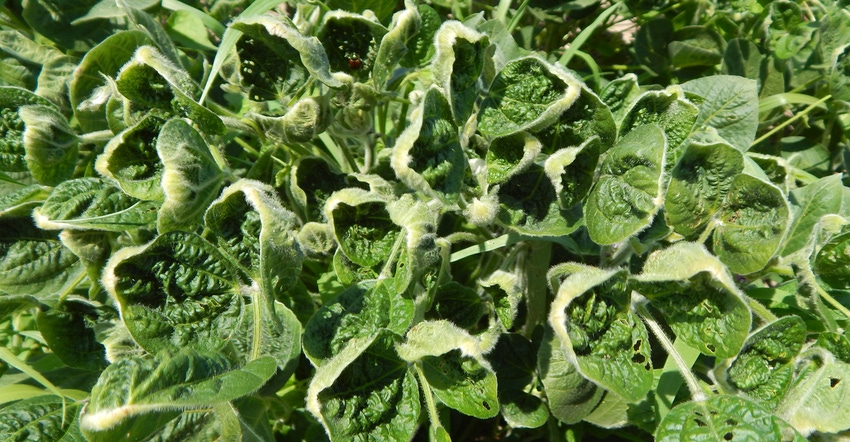March 26, 2018

Who would have thought those few short rows of soybeans growing under 24-hour armed-guard protection in Monsanto’s Farm Progress Show plots years ago would someday cause such an uproar in agriculture? The first time I saw the beans when they were in early testing, I thought it was great “gee-whiz” technology. Someone figured out how to get dicamba herbicide tolerance into soybeans, so perhaps someday you could kill tough weeds. It was exciting.
Looking back through the lens of time, there was no way I could have imagined what would happen if the technology made it to market. Obviously, the developers didn’t see all the consequences either. What most people saw was what I saw: a chance to kill tough weeds.
No one really thought people would apply old formulations of dicamba on dicamba-tolerant beans, leading to rampant crop injury in 2016, primarily in Arkansas and Missouri. No one predicted confrontations that would lead to farmers killing each other over herbicide drift. No one anticipated the massive training effort that would be launched after the 2017 season.
Historians will look back and call these unintended consequences. Some will likely claim they saw these things coming all along, but most people didn’t. Sometimes unintended consequences are horrific. Sometimes unintended consequences have better outcomes.
Training outcomes
In Indiana, the Office of Indiana State Chemist and Purdue University Extension decided to tackle providing the dicamba training required under revised labels for 2018. Anyone who sits in the sprayer seat and sprays one of the three newest dicamba herbicides must first attend training.
I don’t intend to spray it, but I’ve attended three training sessions. Each one covers the same material, but in slightly different ways. Some unintended consequences of dicamba training are emerging, such as:
• Neighbors are talking to neighbors. Jim Luzar, Purdue Extension ag educator in Parke County, says one requirement is to find out what your neighbors will plant in fields around any field you intend to spray with dicamba. Non-dicamba soybeans are a sensitive crop. You need to know where they are so you can decide when you can spray, and what you can count as a buffer.
Some neighbors haven’t spoken in a long time, usually because one outbid the other on land or cash rent, Luzar says. Maybe in some cases, this is forcing them to talk to each other. It’s at least causing them to be creative, perhaps by texting their neighbor or using some other method to find out what’s planted next-door.
• People are keeping better records. An important part of the training is the emphasis upon recordkeeping. It goes far beyond typical recordkeeping requirements for restricted-use pesticides. Luzar suspects some people are relearning the importance of records and the value of getting organized before the season arrives.
• Farmers are making better decisions. One father and son attended training, realized how narrow the window for spraying could be, and decided to buy a bigger sprayer to cover more acres faster, Luzar reports. In other cases, farmers are deciding it’s not worth the hassle or risk, and are deciding dicamba is not a viable option for them. They’re opting for an alternative program. It’s all about realizing you must decide one way or the other.
So did those innocent little rows growing at the Farm Progress Show hold the key to better weed control, or was someone coming with the key to Pandora’s box? We still don’t know for sure. We only know two things: Agriculture will never be the same. And training, better neighbor relations and improved recordkeeping are good consequences.
Comments? Email [email protected].
You May Also Like




